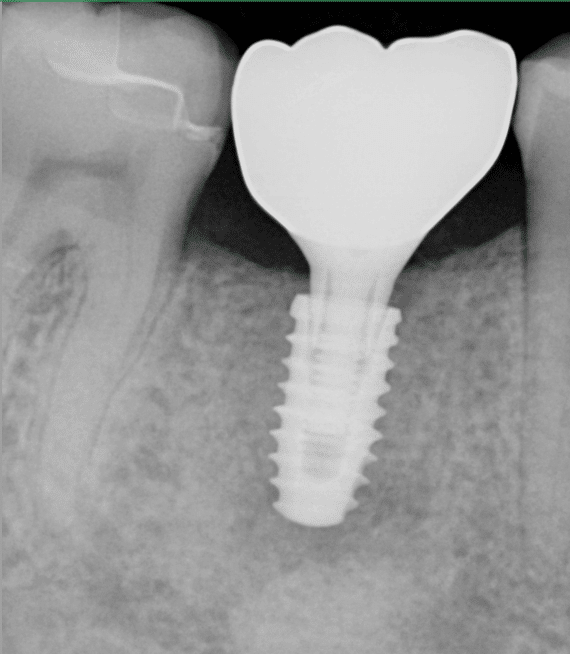The Gold Standard
Dental Implants
Did you know that almost half of the population is missing a tooth? Furthermore, one in three adults 65 years or older have lost 6 or more teeth.
What is the process to getting dental implants?
- Consultation: Evaluate medical history, x rays to see if you are a good candidate
- CT scan: 3D imaging of your jawbone to plan the case digitally
- Surgery: Implant procedure will be performed, followed by a 4 week follow up
Final restoration: Final crown/tooth can be attached to the implant 4-6 months after placement of implant.


Why invest in dental implants at
Smile Vegas Dental
Not replacing a missing tooth right away can lead to issues such as:
- Bone loss: when a tooth is removed, the bone that supported that tooth will begin to resorb or dissolve over time. This will create bony defects which can lead to changes in face shape and collapse of the cheeks which can make patients appear older.
- Teeth shifting: teeth count on neighboring teeth to hold its position. Whenever a tooth is removed, the neighboring or opposing teeth will begin to move or tip into the missing space which can alter the way you bite. The shifting of the other teeth can also complicate replacing the missing tooth.
- Difficulty of chewing and eating: chewing efficiency decreases when missing teeth


Questions on Dental Implants? Check our
FAQ
Most patients are candidates for dental implants. The main factor in considering whether you are a good candidate is the amount of bone you have remaining after the tooth is gone. The longer you wait, the more the bone will absorb making it more difficult to replace the missing tooth
It varies based on patient’s medical history, bone density, and complexity of the case. On average it can take anywhere from four to six months for the implant to integrate into the bone. After the implant is integrated, it can take up to 3-4 weeks to get your final tooth placed onto the implant.
The idea of pain after an implant weighs heavy on most patient’s mind. The good news is we find most patients have minimal pain after implant surgery! Patients are completely numb during the procedure where they do not feel anything, and we typically prescribe medications to help make the first 48-72 hours comfortable for patients.
We tell our patients to treat your new implant tooth just like any other tooth you have in your mouth. Brush twice a day and floss daily. Make sure to keep up with your regular dental exams and cleanings.
Dental implants have a very high success rate and can last up to decades as long as you are staying up to date with your oral hygiene.
A prosthesis used to replace lost teeth is called a dental implant. In essence, it’s a tiny titanium post or fixture that is placed into the mandible, to which a fixed bridge, partial denture, complete denture, or single crown may be affixed. Following the implant’s integration with your bone, the prosthetic tooth or teeth are affixed to the implant via a device known as an abutment. An “implant tooth” is therefore made up of three components: the fake tooth, the abutment, and the dental implant itself.
Dental implants have the ability to last a lifetime and can improve appearance, confidence, and participate in an active lifestyle without worrying about your teeth. Since dental implants are made from titanium, they can never get dental decay.
With every procedure may come the risk of infection, inflammation, and pain, but we will handle how these are managed when the situation arises. However the chances of this happening is slim to none.
No, they are solidly affixed to the bone and allow teeth to be replaced as close as how natural teeth are.
It’s recommended to eat a liquid diet for the first 6 hours following the surgery unless instructed otherwise. Avoid strenuous work and/or exercise for at least 1 week after the surgery. These include aerobics, sit-ups, jogging, heavy lifting, etc.

